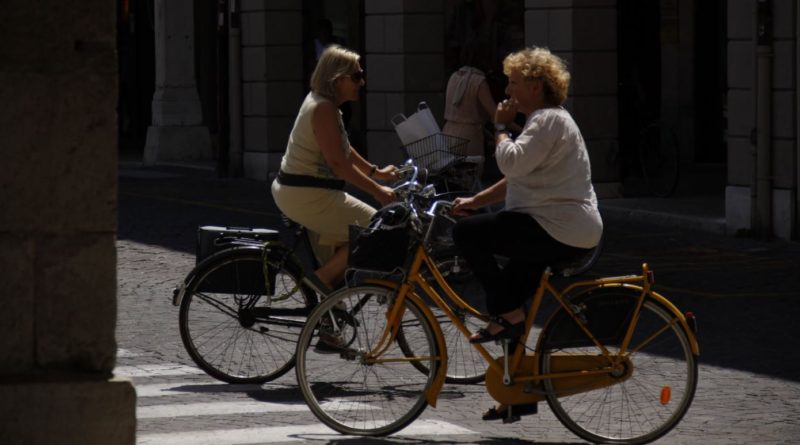“Demonising cyclists is pointless,” says Chief Scientist at Transport lab
The Chief Scientist at the UK’s Transport Research Laboratory has written that “demonising cyclists is pointless” in response to current headlines related to comments made by the Transport Minister Grant Shapps.
Shapps yesterday was quoted by the Daily Mail as having proposed insurance and licensing for cyclists, only for the comments to later be retracted somewhat in a piece the appeared in The Times.
“I’m a keen cyclist, I’m very proud of the big expansion in the number of miles being cycled. I’m not attracted to the bureaucracy of registration plates. That would go too far,” Shapps said in the Times, clarifying earlier comments.
That has not stopped the press, both national and local, again latching on to the subject and misrepresenting the discussion. GB News and the Daily Mail were two such platforms to air as fact a poll stating that 91% of motorists were in favour of insurance and number plates for cyclists; though the readout was in fact generated by surveying notoriously anti-cyclist FairFuelUK’s members.
Dr Shaun Helman, Chief Scientist at the Transport Research Laboratory wrote in a blog: “Demonising cyclists is pointless. We know how to reduce pedestrian casualties. We need to build – by design – a transport system free from exposure to & free from fear of harm or injury. Starting with a discussion about speed limits for ALL road users.”
Posted alongside an infographic that contextualised the discussion, the official data reveals that:
Pedal Cycles caused 4 pedestrian deaths, to 200 killed by cars, 12 by coaches, 24 by vans and 39 by HGVs. The seriously injured statistics read far worse when the vastly larger kinetic energy of larger vehicles is applied versus bikes. To 99 pedestrians seriously in incidents with bikes, 3,106 were badly hurt by cars.
Helman concluded that the debate should instead be framed around speed limits, even agreeing that cyclists should abide by rules.
“At the population level, annually, we have nearly 300 pedestrian deaths and nearly 4,000 pedestrian serious injuries caused by the various vehicles types above, with around 1-2% of these being in collisions with cyclists.
“Any attempt to ensure that cyclists are subject to the speed limits of the roads on which they travel (something I happen to agree with) should therefore include consideration of how to properly control the speeds of all other vehicle types, within the Safe System approach to which the Government is committed. To protect those most vulnerable, the debate here should not be about cyclists and speed limits. It should just be about speed limits.”
It is fair to say that average cycling speeds are not, as the Transport Secretary hinted, anywhere near 20mph. “Cyclists can easily exceed those,” said the Transport Secretary, to the bafflement and possible embarrassment of the majority of riders. According to data, only professional racing cyclists tend to average 25-28mph on flat ground. Meanwhile, electric bike assistance is capped at 15.5mph, which is in line with the approximate cruising speed of fitter road cyclists (not to say that it cannot be exceeded if a rider tries).
Edmund King, President of the AA, distanced his organisation from the Transport Secretary’s rhetoric, offering “It is in the interests of all road users, and indeed our environment, that as a society we encourage more use of active travel, such as walking and cycling, and also transition to zero emissions vehicles.
“Introducing more barriers to slow the take-up of safe cycling would be a retrograde step. What we really need is better infrastructure for cycling so that some of the present-day issues on the roads are removed.”
Should the UK transition to a system where bicycles carry number plates, the only other country globally we would accompany would be North Korea, with several countries having tried and dismissed the idea, in part down to the disproportionate costs to administer versus the return income from penalties. As many commentators have pointed out, number plates have often not stopped heavier vehicles committing crimes.
Last year Baroness Vere of Norbiton took on the question of cyclist registration, answering “The costs of doing so would outweigh the benefits, and this would deter many people from cycling particularly if cyclists (including children) had to cover the costs of such a system. There would be many practical difficulties too: registration plates would need to be large enough to be seen by cameras and other road users, and there is not generally enough space on bikes to allow for this.”
Echoing King, Cycling UK’s Head of Campaigns Duncan Dollimore said: “These latest proposals to regulate cycling are impractical and unworkable, and have been repeatedly dismissed by successive governments.
“They’re also a complete U-turn on current government policy.
“As cost of living ramps up, we’re seeing more people turning to cycling to meet their local transport needs. Rather than proposing expensive barriers to cycling more – both to the Exchequer and the individual – we need this government to encourage people to cycle more, not less.”
Finally, it’s worth noting that even though the company could stand to profit, specialist insurers such as Bikmo have openly said they do not support mandatory insurance for cyclists. Bikmo’s CEO David George said that of all claims made, just 0.6% were third-party liability property claims against a cyclist between 2019 and 2021.
“We need to be doing everything we can to make cycling easier, not burden it with unnecessary red tape through registration – which will decrease levels of cycling participation,” wrote George.



